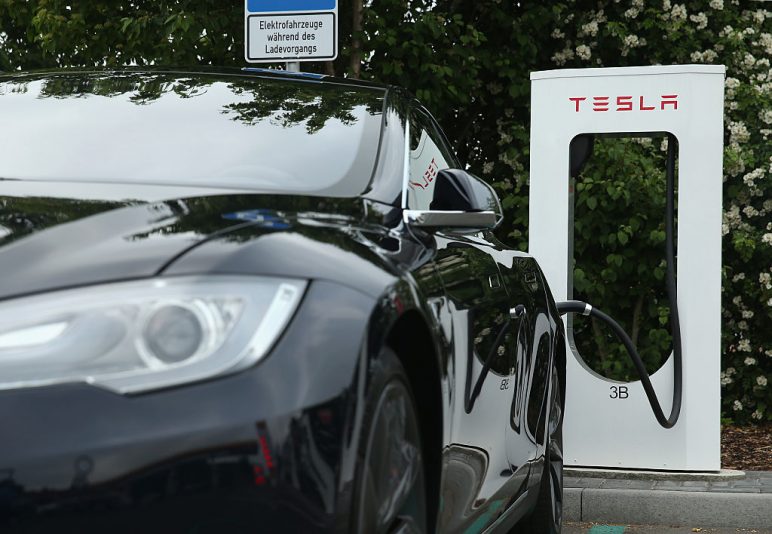

OAN’s James Meyers
1:24 PM -Tuesday, March 5, 2024
A new study claims that electric vehicles (EV) release more toxic emissions into the atmosphere and are worse for the environment than gas-powered vehicles.
Advertisement
The study was published in 2022 by Emission Analytics, but has garnered more attention after being highlighted in a Wall Street Journal op-ed Sunday.
The study showed that brakes and tires on EV’s release “1,850 times more particles of pollution” compared to modern tailpipes in gas-powered vehicles.
EV’s on average are 30% heavier, which “causes brakes and tires to wear out faster” than on standard gas guzzlers, the study showed.
Tire wear emissions on half a metric ton of battery weight in an EV are over 400 times as great as direct exhaust particulate emissions. For reference, the average EV battery weighs close to 1,000 pounds.
Particle pollution can reportedly increase health problems such as heart disease, lung disease, asthma, and in extreme cases, can lead to hospitalization.
Meanwhile, the new study questions the practicality of the Biden administration’s EV mandates, which claims electric vehicles are “zero-emissions vehicles” with hopes of mandating two-thirds of new cars in America to be fully-electric by the year 2032.
Additionally, California has been working to impose a complete ban on all gas vehicles by 2035.
According to Nick Molden, the founder and CEO of Emissions Analytics, increased exposure to these toxins can negatively affect wildlife as well.
“A lot of it [chemicals] goes into the soil and water, affecting animals and fish. And we then go and eat the animals and fish, so we are ingesting tire pollution.”
“Tires are made up of a lot of nasty chemicals.”
Molden said that “the best first thing” to do to address this problem is to “change the recipe, minimize a number of toxic chemicals in the tires — then you got the best of both worlds.
The Environmental Protection Agency has reportedly proposed plans to increase emission standards, starting with the 2027 model year, when automakers will be forced to sell even fewer gas-powered vehicles.
Stay informed! Receive breaking news blasts directly to your inbox for free. Subscribe here. https://www.oann.com/alerts






Be the first to comment